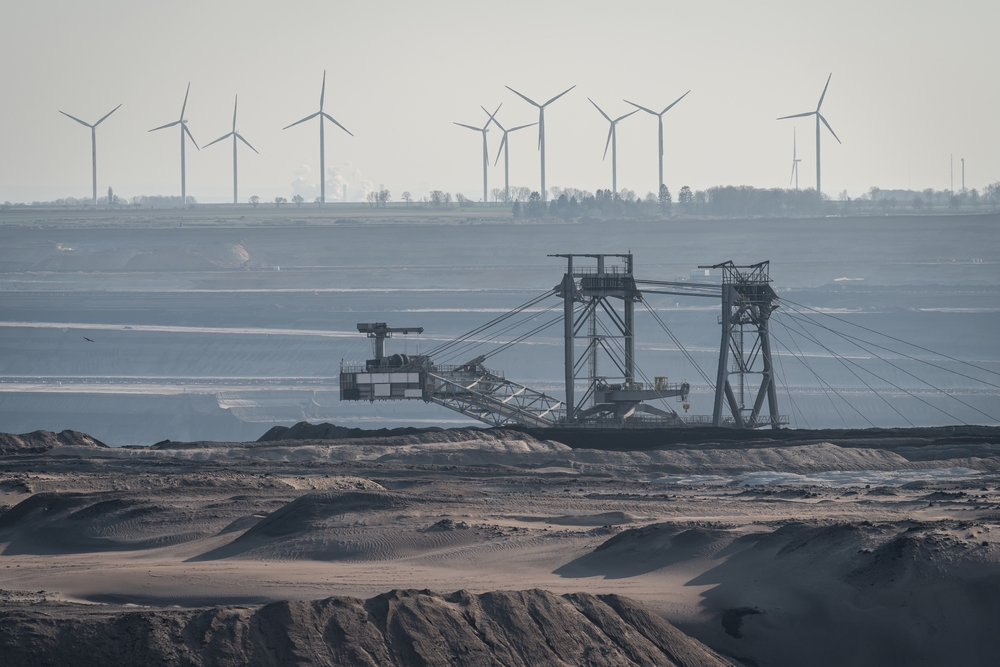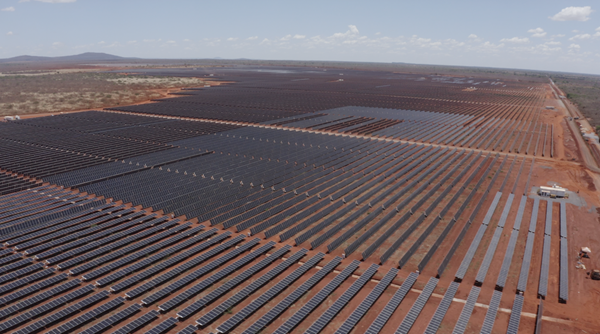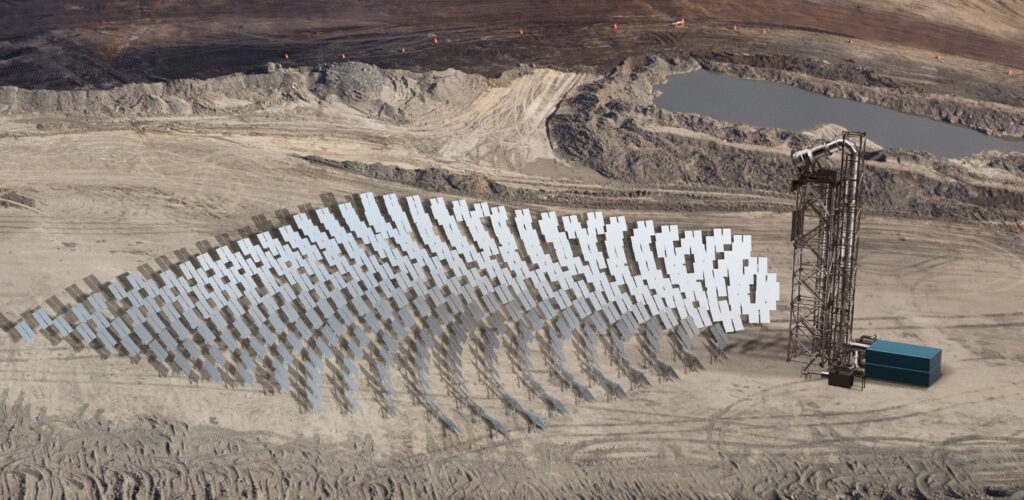HOW TO BUILD A FULLY ELECTRIC MINE

Milos Ruzicka/Shutterstock
It helps to start from scratch, and Norway’s Norge Mineraler and global electrification and automation company ABB are making the most of a new opportunity. As reported in Mine, Norge Mineraler have announced the discovery in south-western Norway of huge new deposits of critical raw materials, including phosphate, titanium, vanadium and phosphorus. As they plan to extract it, they are collaborating with the electrification and automation company ABB to design the mine to be fully electric from the start.
Integrating electrification at the mine design stage
Norge’s engineering manager and technical leader Hercules Sandenbergh says in Mine’s article that this is “exactly the time a project team looking to electrify a mine should start planning … If you don’t plan upfront, the options for electrification might be severely limited … Proper planning can not only help achieve decarbonization goals, but also realize performance advantages that often come from electrification.”
For example, says Sandenbergh, “You are able to put more power into trolley assisted mine trucks than diesel, meaning they can travel up greater inclines … [I]f you don’t plan … you will not be able to put the trolley system in as a retrofit and won’t see such great benefits because your mine is just not designed in that way.”
Anticipating the future
Mine quotes ABB’s Anton Venter, who says: “An electric mine looks different to a traditional mine, and the design of an all-electric mine needs to consider future developments, too.” His company is undertaking a feasibility study that addresses electrification, automation and digitalization together, both from the outset and for the long term. Says Venter, “We started … looking at the site to see what is possible from a design perspective. As part of the study, we have to look at process design; once process design is finished, we can start looking into the electrical design.”
Sandenbergh explains that while some technologies are already established while others are still in development, adding that the speed of innovation today means that will likely always be the case. “We can work that into our mine to put in the best available technology in – but also, through our design, we can keep the option to implement electric technologies as they mature.”
Integrated electrification and digital systems
ABB is also looking to future possibilities with its holistic eMine framework of solutions. “It is an ecosystem,” says eMine solutions manager Nic Beutler, “covering everything from mine to port – that makes the all-electric mine a reality through integrated electrification and digital systems.”
Beutler adds that eMine is a natural extension of mining operations, that “not only covers physical assets – mine electrification and the automation of fleets – but also helps oversee a mine’s operations, providing real-time actionable insights to increase efficiency and reduce emissions.”
Mine begins their article with a quote from the Electric Mine Consortium (EMC): “Electrification creates enormous opportunities for operational cost savings, innovative mine designs and resilience against uncertainty.” The group of more than a dozen mining companies and suppliers is collaborating to hasten the realisation of fully electrified, zero-carbon and particulates-free mines. Such mines, it adds, will cut scope 1 and 2 carbon emissions completely while increasing mine productivity and helping “unlock deeper and more remote ore bodies”.
Read more here.
A ROUND-THE-CLOCK CLEAN ALTERNATIVE TO FOSSIL FUELS
Achieving high levels of renewable energy is particularly challenging for off-grid mines in remote locations because intermittent PV or wind with costly batteries still require dirty, expensive diesel for backup. Many mines also require high-grade heat for on-site processing and other uses. 247Solar offers the only renewable energy technologies that:
- Integrate seamlessly with PV or wind to provide 24/7 dispatchable baseload power
- Provide industrial grade heat up to 970 ℃ (1800 ℉) for ore processing, steam generation and other applications
- Provide their own backup by burning almost any locally available fuel to produce power even when storage is depleted, eliminating gensets and reducing fuel costs up to 80%
Get in touch to learn more
VALE ACHIEVES 100% RENEWABLES IN BRAZIL

Vale
Vale, Brazil’s largest miner, has announced that 100% of the electricity used in its operations in Brazil in 2023 came from renewable sources, such as hydroelectric, wind and solar power plants. This milestone was achieved two years ahead of the company’s target date of 2025.
Vale claims in its statement that this eliminates its indirect scope 2 emissions in Brazil. The company acknowledges that it still has the challenge of achieving 100% renewable energy consumption in its global operations by 2030, but this indicator already stands at an impressive 88.5%.
Vale is also working to reduce its direct Scope 1 emissions. In the mines and railroads, where diesel is currently intensively consumed, the company is studying the adoption of alternative fuels, such as ethanol for trucks and green ammonia for locomotives. In the pelletizing furnaces, the strategy is to replace anthracite, a type of mineral coal, with zero-emission biocarbon, made from the carbonization of biomass.
Vale’s overall goal is to “reduce its scope 1 and 2 CO2 emissions (direct and indirect) by 33% by 2030 and to become net-zero by 2050,” explains Vale’s Director of Energy and Decarbonization, Ludmila Nascimento on the company’s website.
A key contributor to the early achievement of Vale’s milestone was the launch its Sol do Cerrado solar complex in 2022. Located in the state of Minas Gerais, the solar complex is one of the largest solar energy parks in Latin America, with an installed capacity of 766 Megawatts. According not the company, that facility has the potential of contributing up to 16% of all the electricity consumed by Vale in Brazil.
Read more.
.
SQM AND CODELCO TO SIGN CHILE LITHIUM DEAL

IStock
Bloomberg reports (via Mining.com) that SQM and Codelco are poised to sign a binding lithium partnership where state-owned Codelco would take a majority stake in SQM’s Atacama salt flat assets in exchange for 30 more years of operations. The deal supports Chilean President Gabriel Boric’s agenda to have more state control in key assets while boosting output of the important battery metal.
The deal would clear the way for the new public-private partnership to ramp up production from less than 200,000 metric tons toward 300,000 tons, thereby giving battery makers greater assurances on future supplies of a key raw material.
Obstacles remain, however. SQM’s second-largest shareholder, China’s Tianqi Lithium Corp., has been pushing to have the deal go to a stockholder vote. Indigenous groups in the area have also criticized the way Codelco and SQM communicated their plans. Nonetheless, the parties are optimistic about formalizing the deal by a self-imposed May 31 deadline.
“We are going through stages,” said Chilean Finance Minister Mario Marcel in an interview. “[I]t’s a matter of meeting the deadline for signing the definitive agreement and then come all these other implementation issues that involve regulatory, financial requirements, etc.”
Read more.
FOLLOW & JOIN 247Solar
LinkedIn US, LinkedinEU, Twitter, YouTube
Contact: info@247solar.com
